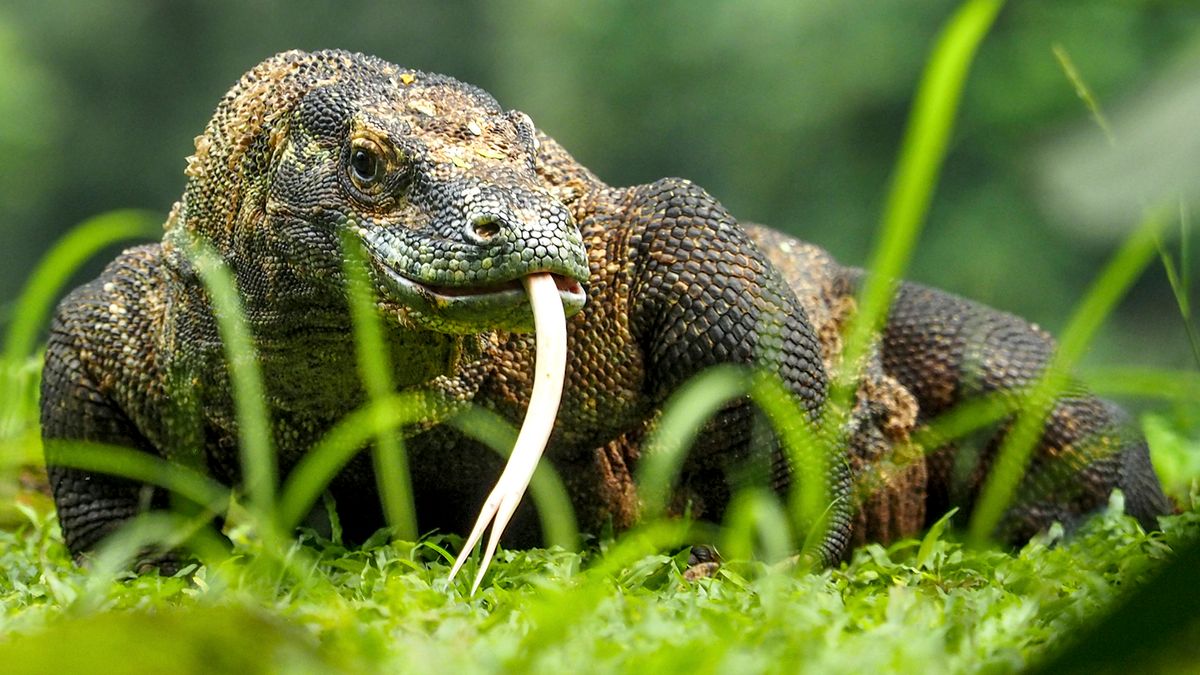1. Komodo Dragon (Varanus komodoensis)
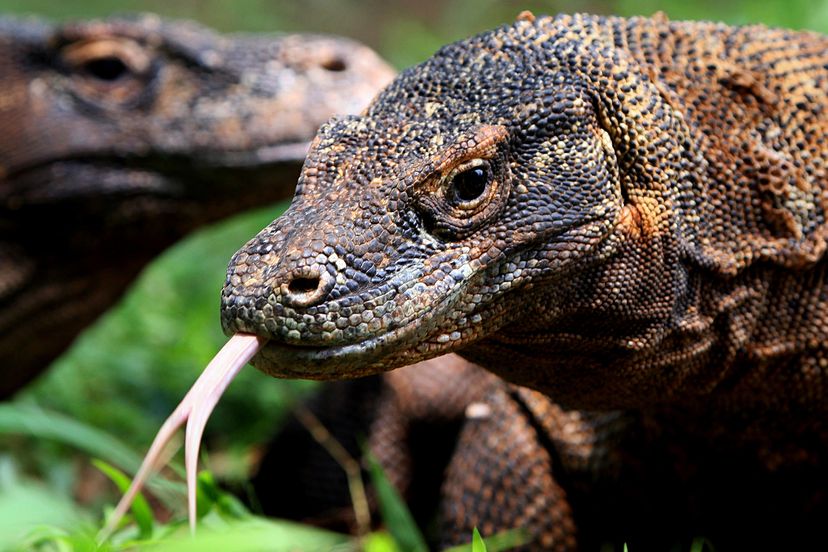
Afriadi Hikmal / Getty Images
The king of all giant lizards, the Komodo dragon is the largest living lizard species, reaching up to 10 feet (3 meters) in length and weighing over 150 pounds (68 kilograms). Some can even reach more than 300 pounds (136 kilograms).
These apex predators live on a few Indonesian islands and have a venomous bite that helps them take down prey much heavier than their own body weight, like horses and water buffaloes.
2. Crocodile Monitor (Varanus salvadorii)
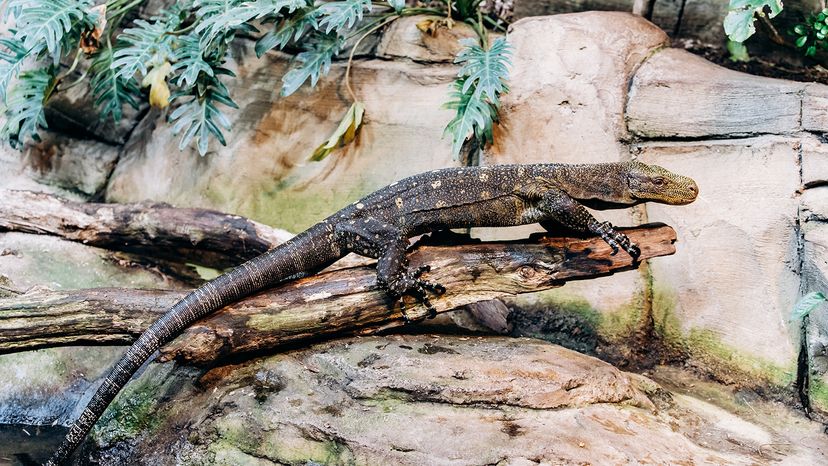
Ewa Studio / Shutterstock
With its whip-like tail and arboreal lifestyle, the crocodile monitor is one of the longest lizards, typically 7 to 9 feet (2.13 to 2.74 meters) long. Some can reach 13 feet (3.96 meters) in length. Found in Papua New Guinea, this species has razor-sharp teeth and a prehensile tail for gripping branches.
3. Asian Water Monitor (Varanus salvator)
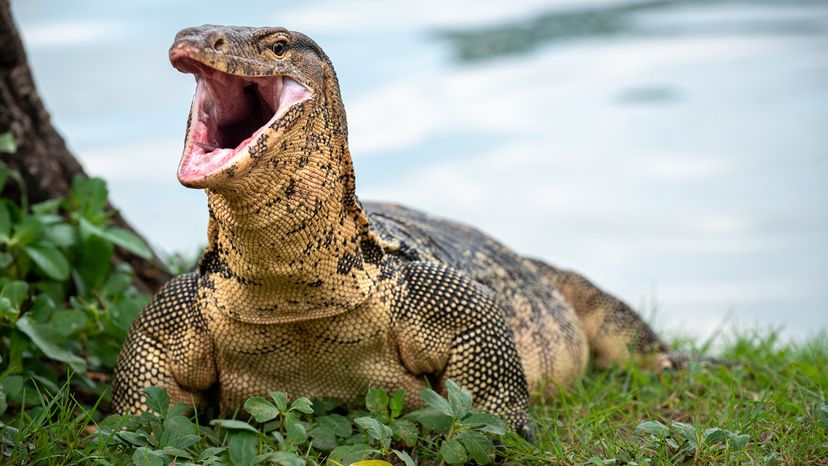
A J Withey / Getty Images
The Asian water monitor is typically about 4 feet (1.2 meters), though it can reach 9 to 10 feet (2.7 to 3 meters). This highly adaptable species lives throughout Southeast Asia. It has incredible swimming abilities.
4. Perentie (Varanus giganteus)
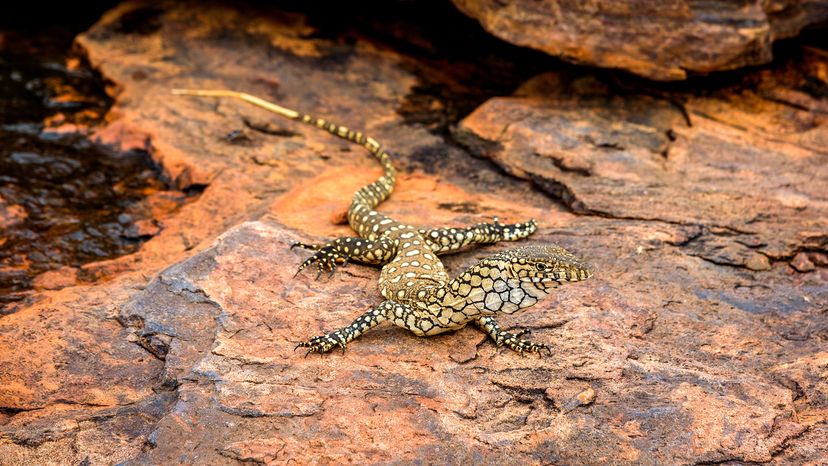
Posnov / Getty Images
Australia’s largest lizard, the Perentie can reach lengths of nearly 8 feet (2.4 meters). This fast and powerful hunter has keen eyesight and the ability to take down sizable prey.
5. Lace Monitor (Varanus varius)
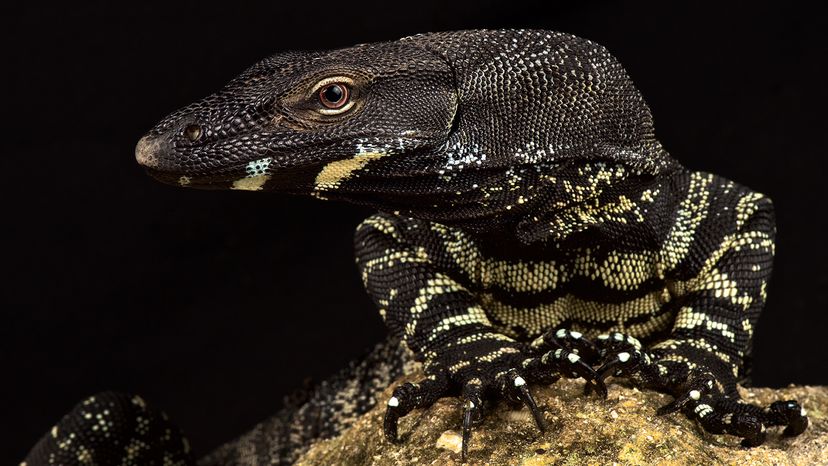
reptiles4all / Shutterstock
Native to Australia, this strikingly patterned lizard can grow over 6.6 feet (2 meters) long. Often found in trees, it’s an agile climber and a formidable predator.
6. Nile Monitor (Varanus niloticus)
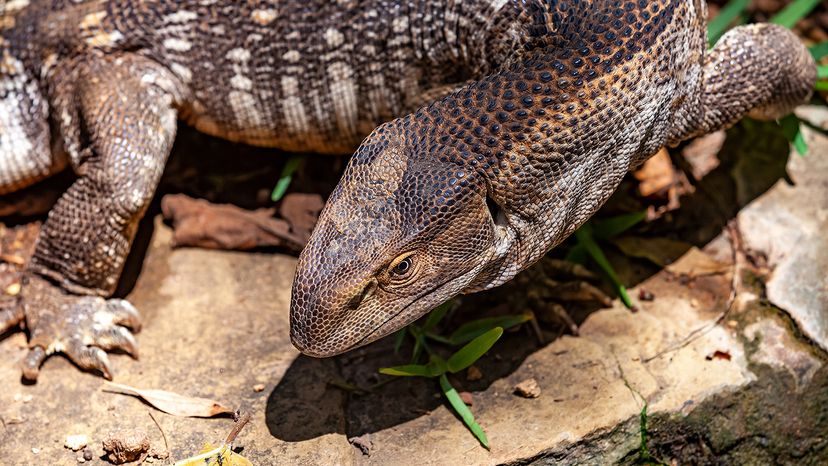
Ayzenstayn / Getty Images
One of Africa’s largest lizards, the Nile monitor can grow up to 6.5 feet (1.98 meters) long. Highly aggressive and strong swimmers, they are often near water, preying on fish, birds and small mammals.
7. Green Iguana (Iguana iguana)
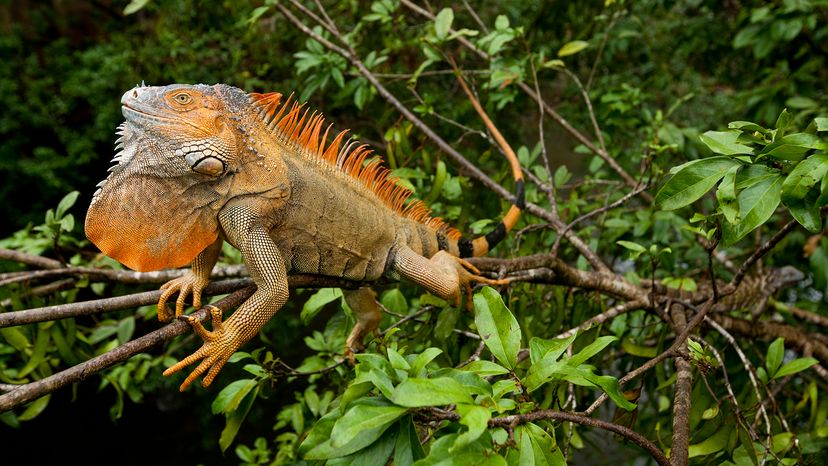
Paul Souders / Getty Images
Commonly seen basking in trees, green iguanas can grow about 6.6 feet (2.01 meters) long, with much of their size coming from their tail length. They are herbivorous and play a vital role in their ecosystems.
8. Argus Monitor (Varanus panoptes)
Another large Australian monitor, the Argus monitor reaches around 4.5 to 5 feet (1.37 to 1.52 meters) in length. It’s famous for its ability to stand on its hind legs to survey its surroundings.
9. Argentine Tegu (Salvator merianae)
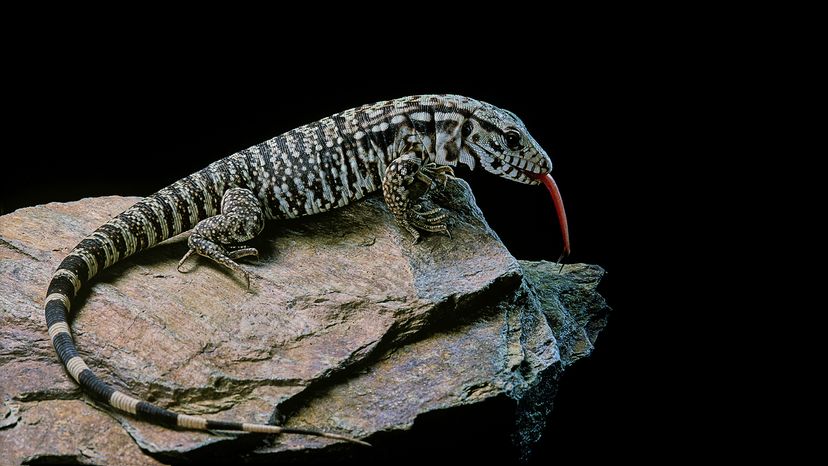
Paul Starosta / Getty Images
One of the largest lizards outside the monitor family, the Argentine tegu can reach about 4.5 feet (1.4 meters). These intelligent lizards are omnivorous. Though it’s illegal in some places, people keep them as exotic pets.
10. Dumeril’s Monitor (Varanus dumerilii)
Dumeril’s monitor can grow up to 4.5 feet (1.37 meters) long. It thrives in the humid forests of Southeast Asia and feeds primarily on crustaceans and small vertebrates.
11. Mangrove Monitor (Varanus indicus)
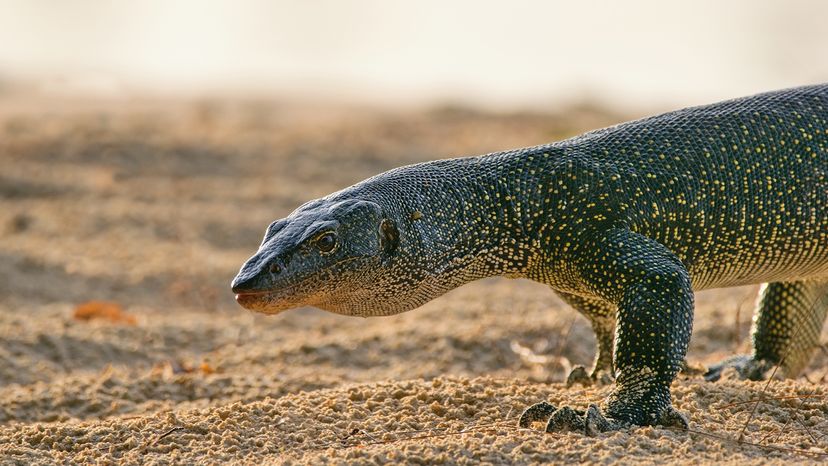
Tunatura / Shutterstock
A highly adaptable species, the mangrove monitor can grow about 3.5 to 4 feet (1.1 to 1.22 meters) long. It often lives in coastal and wetland areas across the Indo-Pacific region.
12. Savannah Monitor (Varanus exanthematicus)
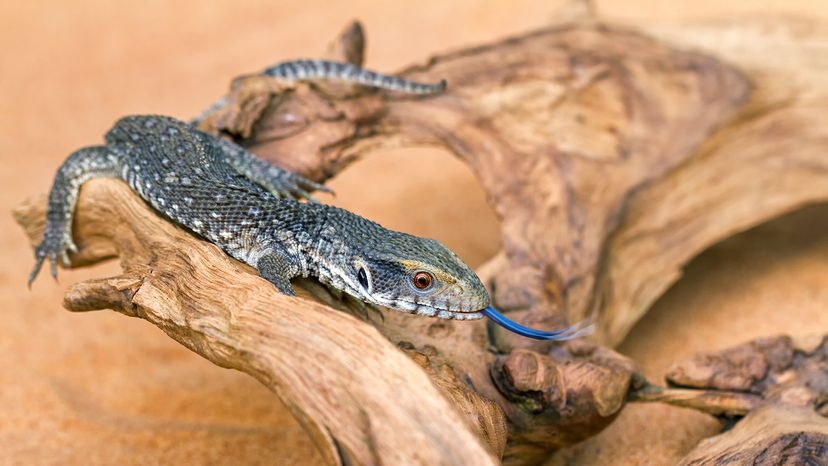
Kefca / Shutterstock
A stocky, ground-dwelling monitor, the savannah monitor are typically about 3 to 4 feet (0.91 to 1.22 meters) in length. Popular in the pet trade, these lizards require proper care and a high-protein diet.
13. Ridge-tailed Monitor (Varanus acanthurus)
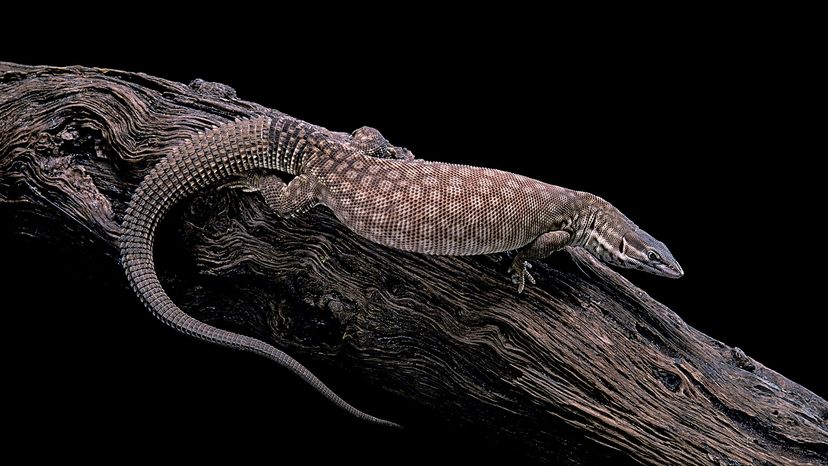
Paul Starosta / Getty Images
Also known as the spiny-tailed monitor, this species reaches about 2 feet to 2.5 feet (0.61 to 0.76 meters) in length. Despite being smaller than other monitor lizards, it’s an agile and intelligent predator.
14. Blue-tongued Skink (Tiliqua spp.)
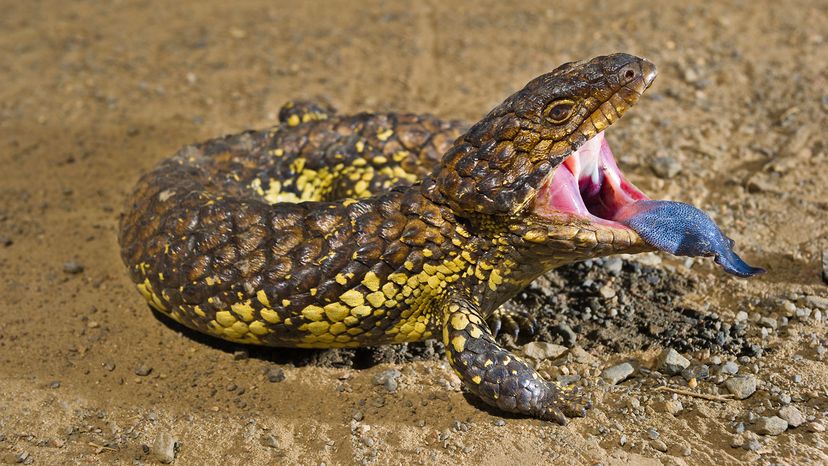
Marc Dozier / Getty Images
Although shorter in length at around 2 feet (0.61 meters), the blue-tongued skink is a hefty lizard with a striking blue tongue and a docile nature.

